

Personal Excellence presented by HR.com May 2023 1 Submit Your Articles 13 08 17 24 I Want To Help…But Should I? - Gary Harpst, LeadFirst How Can You Tell If You Can TRUST Someone? - Yoram Soloman, Trust Habits Are You Losing The Human Touch? - Tim Connor, Connor Resource Group MAY 2023 • Vol. 28 • No. 05 (ISSN 2564-1948) 10 Simple Ways To Improve Your Life Today - Jim Stovall, Narrative Television Network THE POWER OF KINDNESS AND COMPASSION IN A STRESSFUL WORLD - Renie Cavallari, CEO & Founder, Aspire
On the Cover
Articles
11 Five Challenges Of Working Remotely And How To Address Them

Navigating connection, collaboration, meaningful opportunities, work-life balance, and space
- Marta Koonz, Principal, The Myers-Briggs Company
15 Finding Harmony In Remote Work: Balancing Autonomy And Expectations A few tips to follow
- Ayanna Kelly, HR & DEI Product Manager, The Rise Journey
22 Why Attitude Over Aptitude?
Building a winning team
- John Tschohl, Founder and President, Service Quality Institute
26 The Smart Manager’s Guide To Remote Decision-Making
Tips to help organizations avoid falling into the trap of groupthink and achieve better outcomes
- Tamara Sanderson, Co-Founder, Remote Works

The Power Of Kindness And Compassion In A Stressful World
more
into your world today
Cavallari,
06
Put
kindness
- Renie
CEO & Founder, Aspire
INDEX Personal Excellence MAY 2023 Vol.28 No.05 (ISSN 2564-1948)
I Want To Help…But Should I?
Five ways leaders can practice responsible generosity
- Gary Harpst, CEO, LeadFirst
10 Simple Ways To Improve Your Life Today
Small steps for big impact

- Jim Stovall, President, Narrative Television Network
How Can You Tell If You Can TRUST Someone?
A guide to assessing trust in others
- Yoram Soloman, Founder, Innovation Culture Institute™ LLC

Are You Losing The Human Touch?

Why face-to-face conversations still matter
- Tim Connor, President, Connor Resource Group

INDEX Top Picks 08 13 17 24
Editorial Purpose
Our mission is to promote personal and professional development based on constructive values, sound ethics, and timeless principles.
Excellence Publications
Debbie McGrath CEO, HR.com - Publisher
Sue Kelley Director (Product, Marketing, and Research)
Babitha Balakrishnan and Deepa Damodaran Excellence Publications Managers and Editors
Personal Excellence Team
Babitha Balakrishnan & Koushik Bharadhwaj Editors
Chinnavel Design and Layout (Digital Magazine)
Chandra Shekar Magazine (Online Version)
Submissions & Correspondence
Please send any correspondence, articles, letters to the editor, and requests to reprint, republish, or excerpt articles to ePubEditors@hr.com
For customer service, or information on products and services, call 1-877-472-6648
Debbie Mcgrath Publisher, HR.com
Babitha Balakrishnan Editor, Personal Excellence

Empowering Personal Growth Through Kindness and Action
Intoday's world, marked by uncertainty, complexity, and rapid change, it is more important than ever to cultivate qualities such as kindness and compassion to enhance our personal well-being and help build stronger, more resilient communities. Despite the challenges and difficulties that we face today, we can still make a positive impact by prioritizing certain values and taking meaningful actions.
The May edition of Personal Excellence is a must-read for anyone looking to enhance their personal and professional skills in today's world.
Renie Cavallari of Aspire emphasizes the power of kindness and compassion in her article, The Power Of Kindness And Compassion In A Stressful World. Cavallari notes that kindness and compassion are often overlooked in the business world, and that a lack of empathy and caring can lead to ineffectiveness, burnout, and dissatisfaction. She encourages readers to cultivate gratitude and intentionally put more kindness into the world, both for the benefit of others and for one's own well-being.

In 10 Simple Ways To Improve Your Life
Today, Jim Stovall of Narrative Television Network provides a list of ten small things that anyone can do to improve their lives and the world around them.
Tim Connor of the Connor Resource Group points out in his article, Are You
Losing The Human Touch? that technology can only do so much to replace the human connection that is essential to meaningful relationships. While digital tools can certainly help remote workers stay connected and collaborate, they cannot entirely replace the value of faceto-face interaction.
In her article, Working Remotely And How To Address Them, Marta Koonz of The Myers-Briggs Company discusses some of the challenges remote workers face, including staying connected, collaborating with colleagues, finding meaningful opportunities, balancing family and work, and finding one's own space.
In brief, whether you are a remote worker looking to improve your work-life balance or a business leader looking to cultivate a more positive workplace culture, the articles in this edition provide practical insights and inspiration for making positive changes in your life and the world around you.
We encourage you to share your thoughts and feedback with us, so we can continue to improve and provide content that meets your needs. Thank you for reading, and we wish you all the best in your personal and professional endeavors.
Happy Reading!
Disclaimer: The views, information, or opinions expressed in the Excellence ePublications are solely those of the authors and do not necessarily represent those of HR.com and its employees. Under no circumstances shall HR.com or its partners or affiliates be responsible or liable for any indirect or incidental damages arising out of these opinions and content.
EDITOR’S NOTE
OR
Advertising
©
No part of
publication may be reproduced or
in any form without written
must be credited.
For
Opportunities, email: sales@hr.com Copyright
2023 HR.com.
this
transmitted
permission from the publisher. Quotations
Excellence (ISSN 2564-1948) is published monthly by HR.com Limited, 56 Malone Road, Jacksons Point,
L0E 1L0 Internet
Personal
Ontario
Address: www.hr.com
Subscribe now for $99 / year And get this magazine delivered to your inbox every month Become a Member Today to get it FREE! SIGN UP Write to the Editor at ePubEditors@hr.com
In a world of unparalleled challenges (global pandemic, racial injustice, political rivalry, digital 4.0, emotional malaise), uncertainty reigns. Finding opportunity in this context requires harnessing uncertainty and harnessing starts with reliable, valid, timely, and useful information. The Excellence publications are a superb source of such information. The authors provide insights with impact that will guide thought and action.

Excellence publications are my ‘go-to’ resource for contemporary and actionable information to improve leadership, engagement, results, and retention. Each edition offers rich and diverse perspectives for improving the employee experience and the workplace in general.









I regularly read and contribute to Leadership Excellence and Talent Management Excellence. I use many of the articles I read to augment my own presentations and I often share the articles with my clients. They are always quick, right on target for the latest issues in my field, and appreciated by my clients. If you want to stay up to date on the latest HR trends, choose a few of the different issues from the Excellence series of publications.





 Dave Ulrich
Rensis Likert Professor, Ross School of Business, University of Michigan Partner, The RBL Group
Julie Winkle Giulioni Author, Virtual /Live Keynote Presenter, Inc.’s Top 100 Leadership Speakers
Dr. Beverly Kaye CEO, BevKaye&Co.
Dave Ulrich
Rensis Likert Professor, Ross School of Business, University of Michigan Partner, The RBL Group
Julie Winkle Giulioni Author, Virtual /Live Keynote Presenter, Inc.’s Top 100 Leadership Speakers
Dr. Beverly Kaye CEO, BevKaye&Co.
WHY EXCELLENCE PUBLICATIONS?
We’re eager to hear your feedback on our magazines. Let us know your thoughts at ePubEditors@hr.com
The Power Of Kindness And Compassion In A Stressful World
Put more kindness into your world today
By Renie Cavallari, Aspire
Idon’t know about you, but for me, the world seems to be extraordinarily stressed out. There are lots of good reasons why we may feel a bit off our game from the Covid hangover and our general emotional health to the impact of war(s), the economy and what seems to be an acceptance of low-grade nastiness.
If you ask me, what the world needs more of, is love, sweet love, or at least a lot more kindness.
Each of us has a unique opportunity to leave positive imprints on one another. It can be as simple as telling someone who is serving you, “Thank you for your service today,” or giving someone whose energy is low or distant… a smile or even a hug!
Kindness is at the heart of compassion. In many businesses, both are frequently overlooked as we
find ourselves with little time and because of the need for unsustainable productivity. These actually cause more ineffectiveness, drive error costs, and create burnout and dissatisfaction. Compassion has never been more important, and though it starts with empathy, caring, and kindness when we really live with compassion, we let go of our judgment of others. When we judge others, we aren’t living as our best selves, and this serves no one.
How did we get here? The world and its various crises, coupled with the media’s need to grab viewership through fear and distrust, have left people feeling like there is no way out. Social media and its endless illusions that people must project perfection has impacted how people feel about themselves and others.
Today more than ever, people feel alone, worried, or afraid. Many are dealing with feelings of overwhelm, dissatisfaction and inadequacy. And all of this leads to living with enormous levels of ‘HeadTrash,’ those nasty little voices in your head that undermine your confidence, steal your energy, and keep you up at night. Sleep does matter. It’s harder to be kind when you feel exhausted!
Personal Excellence presented by HR.com May 2023 6 Submit Your Articles
“What the world needs now is love, sweet love It’s the only thing that there’s just too little of What the world needs now is love, sweet love, No not just for some but for everyone.”
COVER ARTICLE
~ Burt Bacharach
‘HeadTrash’ is an epidemic. It isn’t in some of us. It is in all of us and learning how to manage and even dump your ‘HeadTrash’ allows you to decrease your emotional stress so you have more clarity and peace of mind and ultimately take productive action in living a life full of joy.
Being Kind Begins with Being Kind to Yourself
To help me find kindness within I start with getting my head ready for my day each morning. I ask myself 5 key questions:
1.What is my word of the day?
Selecting a positive word helps me turn on my motivational switch. My word might be focus, fun, productive, or kindness. On Sundays, family days in our household, it is always love.
2. What ‘HeadTrash’ do I need to dump?
Acknowledging what negative or stressful thoughts are sucking your energy helps you start the process of dumping your trash.

3. What did I accomplish yesterday?
Just knowing that you made progress in some way helps turn on your energy and get you moving. There are some days where I can only say I got through my email and put out lots of fires with my team. It might not have felt like much, yet my accomplishments, no matter how small or mundane, made a difference to someone.
move into action. When I am productive I feel great. Productivity squashes ‘HeadTrash.’
5. What am I grateful for? This is my favorite question, as gratitude is acknowledging the good in your life.
Gratitude is foundational to awakening kindness. When we live with gratitude we show up differently with others. We give more. Care more. These acts of kindness can not only change others’ lives in a nanosecond but also impact our lives emotionally and physically.
Kindness is simple. It happens when another person feels valued, and in my experience, having worked with hundreds of organizations around the globe, all humans have one thing in common regardless of what they do, what they earn, where they live, or what they believe.
All humans want to feel valued and know that they matter.
Today I challenge you to find ways to intentionally put more kindness into your world.
4. What is most important for me to accomplish today?
This clarity gets me ready to be productive and
Known as a “dynamo who colors outside the lines” and who is called the transformational coach, Renie Cavallari is an award-winning Organizational Anthropologist, CEO Advisor and is the owner of 4 companies, most notably the founder of Aspire For over 25 years, Renie has worked with thousands of leaders and entrepreneurs around the globe to help their companies become better at what they do by providing practical action-oriented applications and proven processes to improve performance. She is an award-winning international strategist, best-selling author, global speaker, and leadership expert with an inimitable grasp of business and its challenges. Her work includes the Joy Journal and the upcoming self-improvement book, HeadTrash
Would you like to comment?

Personal Excellence presented by HR.com May 2023 7 Submit Your Articles The Power Of Kindness And Compassion In A Stressful World
I Want To Help…But Should I?
Five ways leaders can practice responsible generosity
By Gary Harpst, LeadFirst
Have you ever genuinely tried to help someone but got burned instead? Don’t let it squelch your generous spirit. Instead, embrace these five tips for responsible giving.
Most leaders have been there: We see someone who needs help, and we quickly provide it, only to end up feeling taken advantage of. Maybe you helped an employee out of a financial jam, only to see them keep making bad decisions. Or you spent hours coaching a younger colleague and then watched him ignore your advice. Or you stepped in to “rescue” a teammate who wasn’t prepared and later realized that she now counts on you to save the day.
Especially in a time of so much need, almost everyone feels the pull of generosity. But at the same time, we can’t help but worry that our generosity isn’t really helping the person in the long run—or worse, that it will have negative consequences for us or the organization.
Not knowing how to balance these impulses can create inner turmoil. We want to help other people but are stuck wondering, Does this person even deserve my help? Or Am I being taken advantage of? Or even “Is giving this person a fish keeping them from learning to fish themselves?”
These are very human feelings and valid concerns. And they pose a real dilemma for would-be givers
and helpers. We shouldn’t let these concerns harden our hearts to generosity. But on the other hand, constantly giving to people who are not maximizing their own time and resources might just be an invitation for them to squander ours.
To navigate this, we need to embrace a mindset that I call ‘responsible generosity.’ It requires us to examine our own motives and to really think about what the other person needs long-term. It is not a ‘get out of giving free’ card; in fact, it may require us to give more of ourselves, which is so much harder but also more meaningful than writing a check.
Here are a few tips on practicing responsible generosity:
Take a Hard Look at WHY You’re Giving
Are you a codependent giver? Do you help others because you have a deep need to feel good about yourself, to be loved and appreciated, or to be seen as a smarter, stronger, or more capable person? Are you doing it as a manipulation technique to get the other person to do something for you in return? Your focus should be on how the gift will impact the other person’s life, not on what you’re getting out of it.
For example, while we’d all like for our generosity to be met with gratitude, do you find yourself thinking, Is this person acting grateful enough? This only sets us up for resentment when people don’t react the way
Personal Excellence presented by HR.com May 2023 8 Submit Your Articles
Top Pick
we think they should. Or, have you started thinking of yourself as a ‘savior’ whose role is to swoop in and save the day?
Keep your ego out of the equation and stop worrying about whether the other person ‘deserves’ it. Very few of us, if any, deserve the grace and good fortune that comes our way. Try to stay focused on the other person’s needs and how you can truly help them.
Make Sure that by Helping Others in the Short Term, You Aren’t Setting Them Up for Long-Term Failure
When we are constantly saving others from the natural consequences of their actions, we rob them of an opportunity to experience accountability. Because they’re not motivated to do better, they don’t improve and grow. By perpetually “helping” them, we keep them from ever becoming self-reliant. Sometimes the most loving thing to do is to say no.
If your teammate has a pattern of coming to meetings unprepared, and you consistently pick up her slack, what you’re teaching her is that you’ll always be there to cover for her. This sets up a dangerous long-term pattern of reliance and makes it harder for her to learn responsibility. Better to let her experience the natural consequences of not doing the work. Constantly saving the day might feel good to you, but it’s not helping her in the long run.
Think Beyond Financial Giving. Sharing Your Time and Wisdom May Be a More Powerful Form of Generosity

There are many times when simply writing a check is not the best way to be generous. Instead, we should think critically about how to be generous with all our resources, including time and wisdom/knowledge. If you know someone who is constantly in need of financial rescue, the best way to help might be to guide them to a better way of living.
If an employee, coworker, or friend is frequently in trouble, we may have the time or money to offer immediate assistance, but guidance, coaching, and accountability are often more valuable. You might offer to help with budgeting or time management, for example. Just be sure not to do it in a judgmental way; always come from a place of love. You might even ask them if they’d like you to be their accountability partner in the future to help them stay on track.
Consider Setting Reasonable Conditions on Gifts
If it’s clear to you that a person is trapped in a self-destructive pattern, you can often help them break out of it by asking them to make small, incremental behavior changes in exchange for your assistance. Tell them up front that if they don’t follow through, there will be no more help. Just be sure to
Personal Excellence presented by HR.com May 2023 9 Submit Your Articles
I Want To Help…But Should I?
use this tough love not as a club or punishment but as a motivation to change. Helping people “win” by taking steps to improve their life is good for them and good for you too.
I once had a friend who would frequently get into financial jams and ask for a ‘loan,’ which never got paid back. He was constantly job-hopping for an extra 50 cents an hour. Those jobs often looked better to him but turned out to be temporary; he would get laid off and come back asking for more. Finally, after yet another request, I agreed to help if he would agree to stay at his current job for a full year, regardless of how much more he could make elsewhere. He stuck to this agreement and learned the value of a steady income that he could depend on.
Don’t Try to Go At it Alone. Connect with Networks that Can Amplify the Impact of Your Generosity

Giving money directly to people who need it is not always the best way to help. A classic example is when someone struggling with addiction uses a donation to buy drugs rather than food— perpetuating the destructive cycle they’re trapped in. Community networks are designed to help people through tough times. If you feel called to give, but lack the time/energy to make sure your gift is
used responsibly, find a partner in your community who can.
In most communities, there are amazing groups like churches, non-profits, and charity groups that stay hyper-focused on improving people’s lives long-term. Supporting their work and then helping connect them with those in need might be the best way to help.
Before giving money, our church gets to know the family, their needs, and what is causing the issue— and then gives strategically to help people address the root cause.

Think about it this way. None of us have unlimited money, time, or energy. That’s true of individuals, and it’s true of companies. We must be good stewards of our resources or they will quickly be depleted.
The more responsible we are with our giving, the more we can give. It’s that simple. And giving, when it’s done with the right spirit, feels great to everyone involved.
Gary Harpst is the author of Built to Beat Chaos: Biblical Wisdom for Leading Yourself and Others. He is the founder and CEO of LeadFirst Having been a CEO for 40 years, Gary has experienced the challenges of every aspect of business ownership, from start-up to rapid growth to acquiring other companies to being acquired. (Solomon Software, which he co-founded, was purchased by Great Plains and ultimately sold to Microsoft.) He is a keynote speaker, writer, and teacher whose areas of focus include leadership, business, and the integration of faith at work.
Would you like to comment?
Personal Excellence presented by HR.com May 2023 10 Submit Your Articles
I Want To Help…But Should I?
Five Challenges Of Working Remotely And How To Address Them

Navigating connection, collaboration, meaningful opportunities, work-life balance, and space
By Marta Koonz, The Myers-Briggs Company
Afterthe Covid-19 pandemic reshaped the workplace, remote work is here to stay, even with the world slowly going back to normal. One in three people is currently a fully remote worker, according to a survey by The Myers-Briggs Company. Also, more than half of the surveyed said they’re hybrid workers to some degree.
Working from home brings different experiences, benefits and opportunities for each individual. It helps people work at times and in ways that fit their natural preferences and needs — something that would not be as easy to achieve in an office. The time that was formerly spent on commuting can be invested in study, self-care, with family, or whatever serves each one’s lifestyle.
Personal Excellence presented by HR.com May 2023 11 Submit Your Articles
Some people love remote or hybrid work, others not so much. But everybody probably agrees that it has its challenges. Let’s consider a few here and how to address them
1. Staying Connected
While some enjoy connecting regularly, others are okay without it. However, at some point, we all need to touch base with our coworkers. Working remotely makes it more difficult to gauge when it is a good time to connect with someone, so it’s important to discuss what works for each individual. A daily video conference? Just an email? Start the conversation to find a middle ground that fits your team’s needs and the company’s needs.
2. Collaboration
Connecting with people virtually to brainstorm and collaborate is also a common challenge for those working remotely. To address it, the best bet is to rely on technology: tools to share files and documents, showing your screen, taking notes on a shareable app, using an iPad, etc. Old-school notebooks are not out of the picture if they help you get creative, so stock up on your favorites! Remember that communication is also key: discuss with those involved in the project which tactics and tools would better help the team.
3. Meaningful Opportunities
We can connect, work, and collaborate through a screen, but how do we make these experiences meaningful for ourselves and for others? Meeting simply because it’s on your calendar is not worth anyone’s time. The tip to making virtual meetings engaging, helpful and meaningful is to have a plan for what’s going to be addressed.
If you’re still working on ideas, start with a small group of co-workers to deepen the conversation and then move on to a larger group. Putting together a meeting agenda is a good practice so everyone can see the purpose of the meeting. Remember to save people’s time: invite only those that are really required to be at the meeting, and minimize the “everyone needs to attend” meetings.
4. Balancing Family and Work
This may be one of the trickiest challenges. We all want to find balance and give attention to all the issues — at home and work. One thing needs to be clear, though: just because you’re home doesn’t mean that you’re available. If you share the family’s responsibilities with someone else, it’s a good idea to make a plan (weekly or even daily) and divide tasks.
Start blocking off times when you need privacy, for example when you have deadlines or a meeting. For the other time slots, create with your family — especially older kids — a system to let them know when you’re available for connections and when you’re not. Leaving the door ajar, for example, means that you can take questions, but when the door is closed you need privacy unless there’s an emergency.
5. Finding Your Own Space
Having a dedicated space where you can focus on work can be a little difficult depending on your living arrangements. It can affect the quality of your work and your productivity. To address the issue, think about who else is home while you’re working and which rooms will your family be using during your hours of focus. Get creative and transform an underused room, a closet or even a corner in your office. Flexibility also counts here as perhaps the quiet space to have a meeting may be different in the morning and afternoon.
Marta Koonz, Ph.D., is a Principal Consultant and Certification Faculty at The Myers-Briggs Company. She is an archetypal psychologist, group facilitator and life coach. In addition to being a Certified Dialogue Education Teacher, Marta is also a Professional Certified Coach (PCC) with the International Coach Federation.
Would you like to comment?

Personal Excellence presented by HR.com May 2023 12 Submit Your Articles
Five Challenges Of Working Remotely And How To Address Them
10 Simple Ways To Improve Your Life Today
Small steps for big impact
 By Jim Stovall, Narrative Television Network
By Jim Stovall, Narrative Television Network
Theseweekly columns have appeared in hundreds of newspapers, magazines, and online publications over 20 years. Each of the more than 1,000 columns ends with a simple reminder that today’s the day. However, most of the columns deal with topics for improvement in your personal or professional life that should be implemented over a series of years or even decades.
Today I want to focus on ten things most of us can do right now to improve our lives and the world around us. There’s nothing magical about these ten
suggestions. Suppose I draft this column on another day. In that case, I might highlight other tips, and you may have some ideas of your own or activities you’ve been putting off that you know you should do. So, for better or worse, here are my ten suggestions for how you can improve your day and your life:
1. Thank Somebody
We all have many things to be grateful for, and we didn’t get here on our own. Write or call someone who has made a difference in your life and thank them.
Personal Excellence presented by HR.com May 2023 13 Submit Your Articles
Top Pick
2. Get a Legal Will
One of the most loving things you can do for your family and friends is to get a will, especially if you have children. If you die without a directive, the government will decide who raises your children. While I recommend your final will be written by a competent attorney, you can get forms online that express your wishes.

3. Get Some Exercise
I’m not suggesting you run a marathon today or even join a health club. Most experts agree that consistently walking may be the best exercise and can certainly impact how you look and feel.
4. Perform a Random Act of Kindness
Go out of your way to do something kind for a stranger with no expectation of getting anything in return. It may be as simple as holding the door open for them, giving them a warm greeting, or paying the toll for a stranger.
You will improve your day as well as theirs.
5. Read a Book
I’m not suggesting you tackle War and Peace, but instead, simply find something that interests you and spend 15 minutes reading each day.
6. Register to Vote
You and your vote can make a difference. There has not been an election in my life that could not have been altered if the people who didn’t vote, or those who never bothered to register, got involved.
7. Get Some Sleep
In our 21st-century world, we mistakenly assume it’s a badge of honor to overcommit and overwork. Invariably, the area of our lives that gets neglected is our sleep. Doctors will tell you that getting at least seven hours of consistent sleep may be the easiest way for most people to improve their health.
8. Unplug
The technology we all utilize constantly makes a great servant but a horrible master. Take control of your life and block out some time with family and friends when you’re not attached to emails or social media.
9. Eat Something Healthy
The old saying that you are what you eat is true. I’m not suggesting that you can permanently revolutionize your diet today, but you can begin by eating a few fruits and vegetables and simply drinking eight glasses of water.
10. Give
Find a charity or a cause that matters to you and give something today. Whether it’s money, time, or simply items you’ve cleaned out of your garage or closet, if we all give a little, we can make a massive difference.
As you go through your day today, commit to small activities that can make a big difference.

Jim Stovall is the President of the Emmy-award-winning Narrative Television Network as well as a published author of more than 50 books—eight of which have been turned into movies. He is also a highly sought-after platform speaker.
Would you like to comment?
Personal Excellence presented by HR.com May 2023 14 Submit Your Articles 10 Simple Ways To Improve Your Life Today
Finding Harmony In Remote Work: Balancing Autonomy And Expectations

A few tips to follow
By Ayanna Kelly, The Rise Journey
Remote work is not going anywhere - we’re headed into a new normal of what it means to “go to work”. Before we get any further, we have to acknowledge that remote work requires immense trust between employees and employers. Trust is crucial in remote work because the prevailing workplace structures are based on a capitalist model that treats workers like machines, mandating constant productivity. However, it’s possible to break away from this model.
The new era of work is an opportunity for us to include more rest throughout the day and structure our work in a way that promotes creativity, and flexibility to have time to live. In 2022, U.S. Surgeon General Dr. Vivek Murthy identified workplace harmony as one of the pillars in his framework to address workplace well-being. The two basic human needs to achieve workplace harmony are autonomy and flexibility. Remote work is one way to provide the flexibility needed to advance workplace well-being. It helps that flexibility supports employee engagement and retention.
A Few Tips to Find the Balance:
● Throw away core hours More and more organizations are globally distributed and can work effectively without requiring core hours or specific time to be “online”.
● Provide work phones or don’t require employees to have all the work apps on their personal devices. Create boundaries around when and where work needs to be done. Requiring employees to be available on their phones at all times crosses the boundaries between work and rest. It also sends the message that you expect employees to respond and be alert at all hours of the day.
Personal Excellence presented by HR.com May 2023 15 Submit Your Articles
● Set clear expectations. It may sound simple but when expectations are clearly established, employees can have the autonomy to meet those expectations when it suits them within reason. The lack of clear expectations causes conflict and the need to control how employees are spending their time.
● Allow space for flexible workday structures. Our brains function on a specific rhythm and eight hours of meetings do not support that. Encourage breaks throughout the day and respect the boundary. If employees have designated small breaks on their calendardon’t ask to schedule something during that time unless it’s an emergency (oftentimes it’s not).
● Be the example and set the tone. If you are a leader or manager, step away when you say you are. If you’re checking in during your PTO or a doctor’s appointment, you’re letting your team know that truly stepping away is not possible.
Bottom line - Trust your employees to do their work even if it’s not in a “traditional” way. Extend grace to everyone, not just the people you perceive to be high performers. Everyone deserves to work in a way that honors who they are as whole people.


Recommended Resources:
● For Real Productivity, Less is Truly More
● Office of the Surgeon General - Framework for Workplace Mental Health & Well Being
● Avoid Burnout and Increase Awareness Using Ultradian Rhythms
● The Happiness Lab with Dr. Laurie Santos Burnout and How to Avoid It
Would you like to comment?
Personal Excellence presented by HR.com May 2023 16 Submit Your Articles
Finding Harmony In Remote Work: Balancing Autonomy And Expectations
Ayanna Kelly is a proud Afro-Latina, mom, wife, and disabled veteran. She is currently the HR & DEI Product Manager at The Rise Journey for their project Rise with OPHR.
How Can You Tell If You Can TRUST Someone?
A guide to assessing trust in others
By Yoram Soloman, Trust Habits
It’simportant to know who you can trust. It’s best to trust people you can rely on. If you don’t trust someone you should trust, it can harm you, them, and the organization. However, trusting someone you shouldn’t can be very risky and have devastating consequences.
So, how do you decide if you can trust someone or not? This article will help you determine whether you can trust someone by providing a practical, science-based method. It will help you decide in what areas and to what extent you can rely on them, based

on your knowledge of their actions and behavior when you interact with them.
Your gut has much to do with accurately determining whether you can trust someone or not, and this article will guide you on how to develop your instincts.
Why Do You Care About Trusting Someone Else?
The simple answer is, “Because we can’t do everything ourselves.” But a more complicated
Personal Excellence presented by HR.com May 2023 17 Submit Your Articles
Top Pick
answer is that we wish to get a reward, which hardly ever comes without risk (“no risk, no reward”). We each have a risk tolerance level, and when the risk associated with that reward is greater than our risk tolerance level, we trust others to bridge that gap.

to do your homework first. The more you must trust them, the more in-depth that homework should be.
The two main areas you should research are their competence and your personality compatibility. You could find information about them by researching them online (search engines, their social media footprints) and by asking someone you know and trust who knows them. Make sure you base your evaluation on facts and not on assumptions. The latter tends to be misleading.
To determine competence, you should ask questions such as:
Click here for a high-resolution image
Robin Dunbar, a British Anthropologist and evolutionary psychologist, performed studies that correlated the volume of a neocortex of different species to their social group size and found that a human can only have 150 “casual friends” in that group. You could have a certain level of trust in those 150 people, a higher level of trust you may have in a smaller group and the highest level of trust in probably no more than five people.
But how do you know if you can trust someone?
You can ask them. But will they tell you? And when they say, “Trust me,” can you trust them? Probably not. I know I wouldn’t.
Trust Them for Who They Are
The decision to trust is based on the components of my relative trust model. Those components are divided (3 each) into two groups: who they are and what they do.
The components of who they are are slow to change. They could be transferrable (someone told us we can trust the other person). They are the starting point for any interaction and rely heavily on evidence (what do you know for a fact about the other person?).
To improve your ability to determine whether you can trust someone based on who they are, you will have
● Do they have the talent, skills, knowledge, and experience to do what you need to trust them to do?
● Do they love what they do? (people who love what they do tend to be good at it)
● Do they finish what they started? Do they typically meet budget and schedule constraints (if applicable)? Are they efficient? Productive? Consistent? Confident (but not overly confident)?
Note that those questions are contextual and would vary with situations, what you need to trust them with, and how much you need to trust them.
To determine their personality compatibility, you must look not only at them but also at yourself. Here are things you could consider:
● At the universal level: are they truthful? Are they empathetic and caring? Do they follow rules?
● At the personal level: do you share values with them? Do you have similar or complementary styles (in some cases, sharing the same values is important. In other cases, having the same personality traits could cause clashes, and being complementary is better)? Are their ethical standards at least as high as yours?
Those bullets are by no means comprehensive. Consider additional questions (whether asking
Personal Excellence presented by HR.com May 2023 18 Submit Your Articles How Can You Tell If You Can TRUST Someone?
another person or searching online) that would be more appropriate for the situation in which you need to determine whether you can trust them.
You should look at the aggregate of the answers. Do you have enough indications that they have the required competence and personality compatibility with you?
The more you must trust them, the more thought this investigation should be. Think of it as a background check, the depth of which depends on the risk associated with trusting that person.
Once you complete this preliminary investigation, you can determine the starting level of trust before interacting with them. Except for unusual circumstances requiring very low trust, you should also interact with them before deciding the level of trust you feel comfortable extending them.
Trust Them for What They Do
It’s not enough to rely on what you learned about the person you wish to trust before meeting them. You must also assess their behavior during the interaction firsthand. While you would be tempted to rely on your gut, there are certain things you should consciously look out for. Those would include:

● How much BS (I don’t need to spell it out, do I?) does the other person “contribute” to your interaction?
● How much empathy do they show you? Do they show a genuine interest in you and care about you?
● When the face-to-face meeting is held in person, are their words and non-verbal cues consistent? Does it appear that they say what they mean and mean what they say?
Whereas you can help to assess who they are through research, you can help to evaluate what they do through immersion. Increase the amount of time you spend with them (the more time you spend with them, the harder it is for them to force an unnatural consistency), meet with them more frequently, and insist on in-person interactions. You will train your gut that way.
Can You Train Your Gut?
Often, when I ask how you can tell who you can trust, the answer is, “I trust my gut.” Undoubtedly, using your gut is a welcome shortcut, but only if it’s a reliable way to assess trustworthiness accurately.
The good news is that you can train your gut to sense if you can trust someone. Initially, the way to do it is to focus on the parameters listed in this article. Research before meeting the other person, and increase interaction time and intimacy.
Compare what your gut tells you with what the evidence and first-hand impression tell you. Whenever you sense a disagreement between what your gut tells you and what the evidence and first-hand impression tell you, investigate further until you resolve that discrepancy. Over time, your gut will be trained, and those discrepancies will disappear.
Even then, it is still recommended that you do the research and increase first-hand exposure.
The latter is where your gut may play a role in determining, but as long as you look specifically for such inconsistency, you can “help” your gut. You will not benefit from detecting body language consistency if you rely on words-only communications (email, text).
Personal Excellence presented by HR.com May 2023 19 Submit Your Articles
Yoram Solomon, Ph.D., MBA, LLB, is the author of The Book of Trust®, host of The Trust Show podcast, founder of the Innovation Culture Institute™ LLC, and facilitator of the Trust Habits™ workshop.
Would you like to comment?
How Can You Tell If You Can TRUST Someone?
HRCI® & SHRM® CERTIFICATION PREP COURSES
GROUP RATES AVAILABLE
For HR Professionals
Show that management values the importance of the HR function, and has a commitment to development and improvement of HR staff.
Ensure that each person in your HR department has a standard and consistent understanding of policies, procedures, and regulations.
Place your HR team in a certification program as a rewarding team building achievement.
For Your Organization
Certified HR professionals help companies avoid risk by understanding compliance, laws, and regulations to properly manage your workforce.
HR Professionals lead employee engagement and development programs saving the company money through lower turnover and greater productivity and engagement.
A skilled HR professional can track important KPIs for the organization to make a major impact on strategic decisions and objectives, including: succession planning, staffing, and forecasting.
HR.com/prepcourse CALL TODAY TO FIND OUT MORE 1.877.472.6648 ext. 3 | sales@hr.com
1 Less expensive than a masters or PhD program, and very manageable to prepare with
2. legislation and best practices
3. Recognized, Industry benchmark, held by 500,000+ HR Professionals
Group Rate Options
We offer group rates for teams of 5+ or more for our regularly scheduled PHR/SPHR/ SHRM or aPHR courses.
For groups of 12+, we can design a more customized experience that meets your overall length of the course.
Groups rates for HRCI exams are also available as an add-on.
All group purchases come with 1 year of HR Prime membership for each attendee to gain the tools and updates needed to stay informed and compliant

CALL TODAY TO FIND OUT MORE 1.877.472.6648 ext. 3 | sales@hr.com | HR.com/prepcourse
1 2 3
Why Attitude Over Aptitude?
Building a winning team
By John Tschohl, Service Quality Institute
Asa business owner or executive, what’s the most important thing you look for when hiring an employee? Is it a resume that is replete with degrees and an impressive list of previous jobs or positions? All too often those are what employers are looking for.
I suggest it should be something else. Sure, you want intelligent employees but there is something more you should be looking for. In a nutshell, you should look
for attitude over aptitude. Why? Because you can train people on the skills they need if they want to work for you, but it’s almost impossible to change people’s attitudes.
Service leaders recognize the truth—and the importance—of that statement. Vernon Hill, the former chief executive officer (CEO) of Commerce Bank, Metro Bank London, and Republic Bank, summed it up this way: “If you don’t smile during the first

interview, there won’t be a second interview.” You would do well to put that principle in place at your company.
Customer contact employees must possess and practice a positive attitude that will make your customers feel welcome, and that will induce them to continue to do business with you. Those qualities are also important when it comes to building a team of employees who work well
Personal Excellence presented by HR.com May 2023 22 Submit Your Articles
together and, in the process, drive your business to greater heights.
Most of us have worked with employees who should never be allowed to have personal contact with customers because they lack the ability to be engaging and helpful. While they might be exceptionally intelligent, they don’t have what it takes to form connections with other people. Often described as nerds, they would much rather spend eight hours a day punching numbers or staring at a computer screen than interacting with other humans.
Of course, you must have products and services of exceptional quality at great prices, but when you combine that with employees who have great attitudes, customers will continue to come knocking at your door. The combination of those three things is critical to the success of your business.
Look at the customer service leaders in your industry and follow their lead when hiring employees. Southwest Airlines, which has more than 66,000 employees, hires only one out of every 45 applicants. It focuses
as much on qualities such as common sense and humor as it does on the skills employees need to do the job, which is ensuring that travelers have a safe trip that includes exceptional service. Southwest hires people to deliver unparalleled hospitality, and as a result, it has passionate loyalty among the 130 million customers it serves every year.
When hiring employees, I highly recommend that you look for these attributes:
Smiles
A smile goes a long way in sending a message that you care and that you welcome the business customers bring to you. It is a visual warm welcome.
Friendliness
When a smile is combined with a helpful attitude and the use of a person’s name, it makes people feel important. It also builds trust and encourages customers to be open to advice about your products and services—and to spend their money with you.
Communication Skills
Look for employees who communicate well with you during the interview. Body

language says a lot, so pay attention to it. Do they make eye contact as you talk, or are they hugging their arms and staring at the ground, sending a message that they’d rather be anywhere other than where they are at that moment? Eye contact is critical to good communication.
Personality
Some people just naturally connect with others. Those are the people who smile as they walk through the door—greeting coworkers and customers as they do so—and who, in the process, put smiles on the faces of those they encounter.
Enthusiasm
People who are excited about their lives, their work, and their relationships emanate an energy that is difficult to describe—but you’ll recognize it when you see it.
John Tschohl is the Founder and President of the Service Quality Institute. He is considered one of the world’s foremost authorities on all aspects of customer service and has written several books, including Moving Up: A Step-by-Step Guide to Creating Your Success.
Would you like to comment?

Personal Excellence presented by HR.com May 2023 23 Submit Your Articles
Why Attitude Over Aptitude?
Are You Losing The Human Touch?

Why face-to-face conversations still matter
By Tim Connor, Connor Resource Group
I’llwager that today - you will send and receive more texts and emails than you have conversations with your – customers, employees, friends and/or loved ones! Am I right?
OK, so I’ll accept that that’s one of the primary ways we communicate today, and it’s one of the primary advantages of technology – sharing information. But I ask you to consider. The good life isn’t about exclusively the exchange of information but about developing trusting, compassionate and enduring human relationships grounded in understanding, thoughtfulness, appreciation and being present. Yes, you can tell me what you had for lunch on Facebook,
but I’d much rather hear from you now and then –in person.
I’m not talking here about that quick text or email from your iPad or iPhone that – “I’m on my way.” – “Your order has been shipped”. “The meeting has been canceled.” What I’m talking about here is – well here are a few recent statistics you might find interesting.
● The average couple spends less than 27 minutes a week in shared intimate (not sexual) conversation, and on average, over 36 hours
Personal Excellence presented by HR.com May 2023 24 Submit Your Articles
Top Pick
per week individually scrolling/searching the internet.
● The average salesperson sends out over 50 emails/texts a day and talks with fewer than 10 customers/prospects during the same time frame. I’m not including here sales folks who are involved in telesales or telemarketing activities.
● The average parent spends less than 0 minutes a week talking to each of their children one-on-one in important child-rearing conversations.
● The average manager sends more emails to employees in a week than they have conversations with them in a month.
Guilty of any of the above?
If so, is it because you believe;
It’s easier, more convenient, or gives you a paper trail? It takes less time, avoids confrontation, and allows you to send messages 24 hours a day? People are too busy today to talk? People would rather use technology than have face-to-face or voice-to-voice conversations? My personal opinion regarding these and other excuses or rationales is – you’re wrong.
The one thing that separates humans from all other species on Earth is the ability and need to share fears, desires, frustrations, feelings, hopes, worries, dreams, and yes, your opinions and information. Humanity is about the ability to create enduring one-on-one and one-to-group relationships based on knowing the other person’s or group’s uniqueness and those special traits that make them human.
I am not against technology, but the evidence is overwhelming – we are losing the human touch with those in our lives both personal and career or business. Don’t believe me! How many times have you gotten a “technology message” rather than a human when you have called any organization? I know . . . that’s just the way it is today. OK, so we agree that that’s the way it is, but I have to tell you, last week, it took me fifteen minutes and pushing multiple buttons on my phone before I could reach
a live person. Frustrating? Well, yes, and then the person I finally reached wasn’t the right person.
So, back to punching numbers on my phone and waiting and listening to their nine “telephone options” before I finally gave up and decided to no longer purchase from that organization but find a new supplier. Ever had this experience, or am I the only one with this frustration? I seriously doubt it!
A question – do you think you might be losing business because of your overuse of technology? Do you think one of your relationships might be in jeopardy because you are relying too heavily on technology? Are you losing touch/connection with others in your life in a real and human way?
Don’t risk it. The answer – use technology as a tool and not a crutch if you want to develop, build and maintain positive relationships with others in your life. Disagree? Go ahead and send me an email. But only 15 people have my cell phone number, so you can’t send me a text.
By the way, if you think this issue is a problem with relationships today – stick around – it’s just getting worse.
Tim Connor is the President of Connor Resource Group. He has been a full-time professional speaker, trainer, coach, consultant and bestselling author for over 35 years. During his career, he has given over 4000 presentations in twenty-nine countries around the world to a wide variety of audiences including over 2000 state and national associations and nonprofits.
Would you like to comment?

Personal Excellence presented by HR.com May 2023 25 Submit Your Articles
The
Are You Losing
Human Touch?
The Smart Manager’s Guide To Remote Decision-Making
Tips to help organizations avoid falling into the trap of groupthink and achieve better outcomes
By Tamara Sanderson, Remote Works
We’veall been there: That meeting that feels like it’s happened before. The decision that keeps getting passed around like a hot potato. The reappearing agenda item that makes you want to scream.
But what if I told you this was natural? It’s a part of human nature.
According to applied psychologist Susan Weinschenk, Ph.D., we all have faulty wiring when it comes to decision-making.
Let’s take groupthink, for example. Every day, countless organizations across the globe, sitting in virtual Zoom rooms and physical conference rooms, come together for an intended purpose: making a decision. However, few of these groups are set up for success.
To demonstrate this issue, researchers Andreas Mojzisch and Stefan Schulz-Hardt set up an experiment: a group would be deciding on prospective job candidates. They found that individuals made far better decisions when they
received candidate information first, before hearing the preferences of others in the group. When individuals learned the other group members’ preferences first, their decision-making suffered.
According to Weinschenk:
The researchers concluded that when a group of people starts a discussion by sharing their initial preferences, they spend less time and less attention on the information that is available outside of the group’s preferences. And they, therefore, make a less-than-optimal decision.
In a follow-up study, Mojzisch and Schulz-Hardt reached the same conclusion about face-to-face meetings. To make the best decision, individuals needed to share their unique information about job candidates before sharing their initial preferences.
While this is an interesting insight, it’s rarely put into practice. According to Weinschenk, 90% of group discussions start off on the wrong foot— discussing initial preferences rather than salient information to the decision.
Personal Excellence presented by HR.com May 2023 26 Submit Your Articles
How can you ensure your organization doesn’t fall into this pernicious trap?
Review Information Asynchronously First
Give people time to review and assess information on their own first. You may consider using polls, surveys, or other research methods to capture individuals’ thoughts and responses before any group discussions. This encourages everyone to come up with their own solutions regardless of their level of extroversion or influence over the group.

Meet Only if Necessary (Especially for Remote Teams)

Only meet if a live conversation is critical to getting buy-in on a decision. Focus the discussion on the supporting evidence, not the preferences of the group.
Document All Other Options and Rationale
Document the decision you’ve moved forward with and the ones you’ve decided to table. This creates an archive of your decision-making history so that colleagues can revisit the logic later on.
Have an Experimental Mindset
Not all decisions need to be final. Try prototyping options if the way forward is unclear. Set a clear timeframe and success metrics to compare the options you’re testing.
Send a Post-Mortem Summary
Communicate the results of the decisions to the people affected and the wider team. Summaries can include a problem statement, the goal, criteria for the decision, alternatives suggested, experiment details (if any), results, and metrics to measure. If it’s a contentious decision or a highly sensitive topic, check in with your team members afterward.
Tamara Sanderson is the Co-Founder, Co-Teacher, and Co-Author of Remote Works. Her mission is to liberate teams from the traditional nine-to-five approach to working and teach them how to do their best work anytime, anywhere. Her new book with co-author Ali Greene, Remote Works: Managing for Freedom, Flexibility, and Focus, is the ultimate playbook for managing remote teams.
Would you like to comment?
Personal Excellence presented by HR.com May 2023 27 Submit Your Articles
The Smart Manager’s Guide To Remote Decision-Making


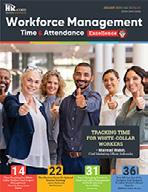


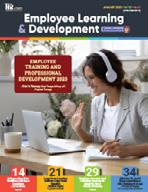
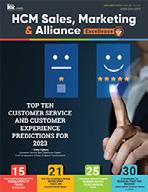

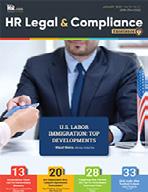
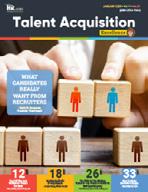


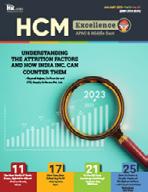
Like to submit an article? Use our online submission form or for more information go to www.hr.com/ExcellencePublications Publications 13 Targeted Publications to Reach Your Audience Informing, Educating, Enlightening and Assisting HR professionals in their personal and professional development, the Excellence series offers high-quality content through the publications!

























 Dave Ulrich
Rensis Likert Professor, Ross School of Business, University of Michigan Partner, The RBL Group
Julie Winkle Giulioni Author, Virtual /Live Keynote Presenter, Inc.’s Top 100 Leadership Speakers
Dr. Beverly Kaye CEO, BevKaye&Co.
Dave Ulrich
Rensis Likert Professor, Ross School of Business, University of Michigan Partner, The RBL Group
Julie Winkle Giulioni Author, Virtual /Live Keynote Presenter, Inc.’s Top 100 Leadership Speakers
Dr. Beverly Kaye CEO, BevKaye&Co.








 By Jim Stovall, Narrative Television Network
By Jim Stovall, Narrative Television Network




























